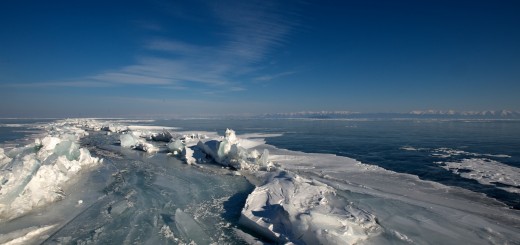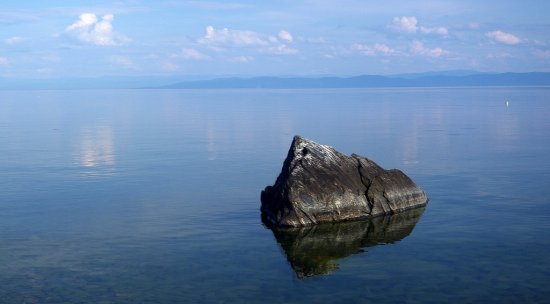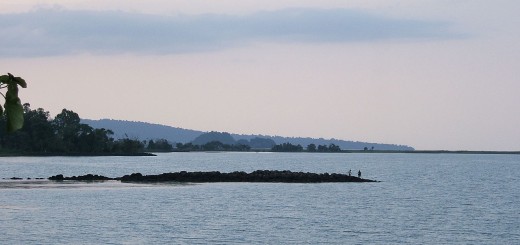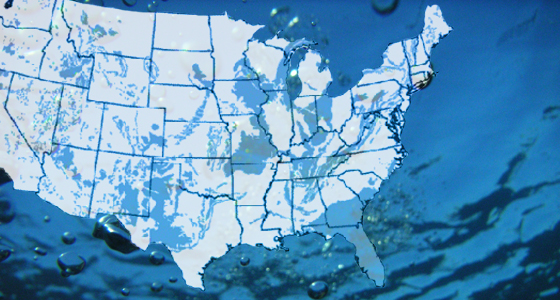Lake Baikal Levels Dropping
1Water levels in Lake Baikal have been a concern for Russian officials since at least early 2015, according to Russia Today. Early in that year, the level of the world’s largest freshwater lake dropped to just over 456 meters (1,496 feet) above sea level, very near the minimum level needed to support economic activity.
At that time, the lake’s levels were being impacted by low inflows making it into the lake, totaling just 67 percent of the usual quantity. The Irkutsk Waterworks, a hydroelectric installation on the Angara River, may also play a role, as it contributes to the loss of 1.3 thousand cubic meters per second from the lake.
But it appears that the issue isn’t going away, and federal Russian forecasters are expecting that low-water conditions this year could be worse.

Lake Baikal. (Credit: NASA)
In December of 2015, Lake Baikal’s levels dropped below the economic activity threshold just barely, hitting 455.99 meters. For 2016, water amounts coming into the lake are expected to continue their drop, contributing to a predicted drop of 28 centimeters (11 inches), according to a representative from the Baikal Institute speaking with the Russian News Agency.
As a result of the multi-year struggle to manage Lake Baikal’s water levels, authorities around the water body are advising residents to cut down on their consumption of water and electricity. The recommendations are not only meant to help people, but also the great populations of wildlife that depend on Lake Baikal to survive, including a rare species of freshwater seal, the Baikal seal.
As a water body large enough to be confused as a sea, the lake holds a quarter of the world’s freshwater and more than 2,000 plant and animal species, two-thirds of which are only found in Lake Baikal, according to the World Wildlife Fund.

Lake Baikal. (Credit: Wikimedia Commons User W0zny via Creative Commons 3.0)
This is not the first time that Lake Baikal has faced falling water levels. In 1982, the lake dropped to 455.27 meters (1,494 feet) above sea level. It was a record drop, but may be rivaled by the conditions expected for 2016.
Despite the issues faced with maintaining Lake Baikal’s levels, Russian officials do not appear concerned about the lake disappearing entirely. This is likely linked to its massive size, and the absence of massive irrigation projects that have threatened other large bodies of water, like the now-depleted Aral Sea.
Are low inflows or hydroelectric power generation more to blame for Lake Baikal’s water level issues? Are there other factors at play? Please consider leaving a comment to share your thoughts!














How many people are living in the area? How is their cutting down the use of water going to have any impact on the largest freshwater lake? They are funny )